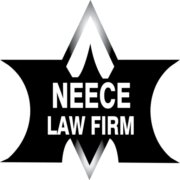Best Criminal Defense Lawyers in North Carolina
Share your needs with us, get contacted by law firms.
Free. Takes 2 min.
Or refine your search by selecting a city:
List of the best lawyers in North Carolina, United States
United States Criminal Defense Legal Questions answered by Lawyers
Browse our 1 legal question about Criminal Defense in United States and read the lawyer answers, or ask your own questions for free.
- Do you prosecute local Philippina for violating ESTAFA laws
- I was scammed by a lady presenting herself as my girlfriend.
-
Lawyer answer by mohammad mehdi ghanbari
HelloBased on the laws of the Philippines, you can file a criminal complaint against the person who scammed you for violating the laws on Estafa (swindling). Estafa is a criminal offense that involves defrauding another person of money or property...
Read full answer
United States Criminal Defense Legal Articles
Browse our 3 legal articles about Criminal Defense in United States written by expert lawyers.
- Clearing Your Record in Texas: 2026 Expunction Rules for US
- Criminal defense in the United States protects your rights from the moment of investigation through trial, sentencing, and appeals, and the stakes can include jail, fines, immigration consequences, and your future job prospects. You always have key constitutional rights: to remain silent, to have a lawyer, to be free from... Read more →
- Texas DWI Laws 2026 First Offense Penalties
- If you are arrested in the United States, you have the right to remain silent, the right to a lawyer, and the right to a fair trial - use those rights from the start. Criminal cases move quickly at the beginning: after arrest come booking, bail, your first court appearance,... Read more →
- Texas Bail Reform 2026: Why Bonds Are Harder to Secure in US
- If your loved one has just been arrested, move fast: confirm the exact charges, find out the bond amount, and contact a criminal defense lawyer immediately. In the United States, you have core rights at every stage - to remain silent, to an attorney, to reasonable bail (subject to exceptions),... Read more →
About Criminal Defense Law in North Carolina, United States
Criminal defense law in North Carolina governs the rights of individuals charged with committing a crime and the processes involved in defending against criminal accusations. The criminal justice system in North Carolina is designed to ensure that the accused receive fair treatment and are presumed innocent until proven guilty. The state handles a wide range of criminal offenses, from minor misdemeanors to serious felonies, and provides several protections and legal processes for those accused.
Why You May Need a Lawyer
If you have been charged with a crime or are under investigation in North Carolina, having a criminal defense lawyer can be essential. Common situations requiring legal help include:
- You have been arrested or charged with a misdemeanor or felony.
- You believe you are under criminal investigation by law enforcement.
- You have received a citation or summons to appear in criminal court.
- Your loved one has been detained or arrested.
- You want to challenge evidence or protect your rights during police questioning.
- You need assistance navigating plea bargains or pre-trial diversion options.
- You are concerned about possible consequences such as jail time, fines, or a permanent criminal record.
Criminal proceedings can be complex, and a qualified attorney can help safeguard your interests, negotiate with prosecutors, and protect your rights at every stage.
Local Laws Overview
North Carolina criminal law is outlined mainly in Chapter 14 of the North Carolina General Statutes. Some key aspects relevant to criminal defense include:
- Classification of Crimes: North Carolina divides crimes into misdemeanors and felonies. Misdemeanors are less serious offenses, while felonies carry more severe penalties.
- Sentencing Guidelines: The state uses a structured sentencing system for felonies, meaning the potential punishment is determined by the severity of the crime and the defendant’s prior criminal record.
- Rights of the Accused: Individuals have fundamental rights, such as the right to remain silent, the right to legal counsel, and the right to a fair trial by jury.
- Bond and Pretrial Release: After an arrest, a judge decides whether an individual is eligible for release on bond while awaiting trial.
- Expungement: North Carolina law allows for the expungement (removal) of certain criminal charges under specific conditions.
- DWI Laws: Driving while impaired (DWI) laws are strictly enforced, with severe penalties for violations, including license suspension and potential jail time.
- Domestic Violence: North Carolina treats domestic violence offenses seriously, with special provisions for protective orders and bond conditions.
Frequently Asked Questions
What should I do if I am arrested in North Carolina?
Remain calm, assert your right to remain silent, and request to speak to a lawyer as soon as possible. Do not answer questions or provide statements to law enforcement without legal counsel present.
How is a felony different from a misdemeanor in North Carolina?
A misdemeanor is a less serious offense with lighter penalties, usually up to 150 days in jail. Felonies are more serious and can lead to much longer prison sentences and larger fines.
Can I represent myself in a criminal case?
While you have the right to represent yourself (called "pro se"), it is generally not recommended due to the complexities and potential consequences of criminal proceedings.
What happens at a first appearance in court?
During your first appearance, a judge will inform you of the charges, set bond, and advise you of your right to counsel. No evidence is presented at this stage.
How is bail determined in North Carolina?
Judges consider factors such as the seriousness of the offense, your criminal history, and your likelihood to appear in court. Bail can range from a written promise to a cash bond.
What is a plea bargain?
A plea bargain is an agreement where you plead guilty to a lesser charge or receive a lighter sentence in exchange for waiving your right to trial. Your lawyer can negotiate plea bargains on your behalf.
Can my criminal record be expunged?
Some charges, particularly non-violent offenses and cases resolved in your favor, may be eligible for expungement under North Carolina law. Eligibility depends on several factors, including the type of offense and your criminal history.
What are my rights during police questioning?
You have the right to remain silent and the right to have an attorney present. You are not required to answer questions, and anything you say can be used against you in court.
What should I do if I am falsely accused?
Contact a criminal defense attorney immediately. Provide your lawyer with all relevant information and evidence. Do not attempt to contact or confront the accuser on your own.
How soon should I contact a lawyer after an arrest?
You should contact a lawyer as soon as possible. Early intervention by an attorney can help protect your rights and potentially influence the outcome of your case.
Additional Resources
For more information or assistance regarding criminal defense in North Carolina, consider reaching out to the following:
- North Carolina State Bar
- North Carolina Office of Indigent Defense Services
- North Carolina Judicial Branch
- Local County Public Defender’s Offices
- North Carolina Department of Public Safety
- Legal Aid of North Carolina, for eligible individuals needing legal representation
Next Steps
If you or a loved one are facing criminal charges or investigation in North Carolina, it is important to act promptly. Here are steps you can take:
- Refrain from discussing your case with anyone except your attorney.
- Contact a qualified criminal defense lawyer as soon as possible to discuss your situation and understand your options.
- Gather and preserve any documents or evidence related to your case.
- Follow all court orders and attend all scheduled court dates.
- If you cannot afford an attorney, ask the court about appointing a public defender to help with your defense.
A knowledgeable criminal defense attorney can guide you through each stage of the process, protect your rights, and help you work toward the best possible outcome for your case.
Lawzana helps you find the best lawyers and law firms in North Carolina through a curated and pre-screened list of qualified legal professionals. Our platform offers rankings and detailed profiles of attorneys and law firms, allowing you to compare based on practice areas, including Criminal Defense, experience, and client feedback.
Each profile includes a description of the firm's areas of practice, client reviews, team members and partners, year of establishment, spoken languages, office locations, contact information, social media presence, and any published articles or resources. Most firms on our platform speak English and are experienced in both local and international legal matters.
Get a quote from top-rated law firms in North Carolina, United States — quickly, securely, and without unnecessary hassle.
Disclaimer:
The information provided on this page is for general informational purposes only and does not constitute legal advice. While we strive to ensure the accuracy and relevance of the content, legal information may change over time, and interpretations of the law can vary. You should always consult with a qualified legal professional for advice specific to your situation.
We disclaim all liability for actions taken or not taken based on the content of this page. If you believe any information is incorrect or outdated, please contact us, and we will review and update it where appropriate.
Browse criminal defense law firms by service in North Carolina, United States
North Carolina, United States Attorneys in related practice areas.
Browse criminal defense law firms by city in North Carolina
Refine your search by selecting a city.















